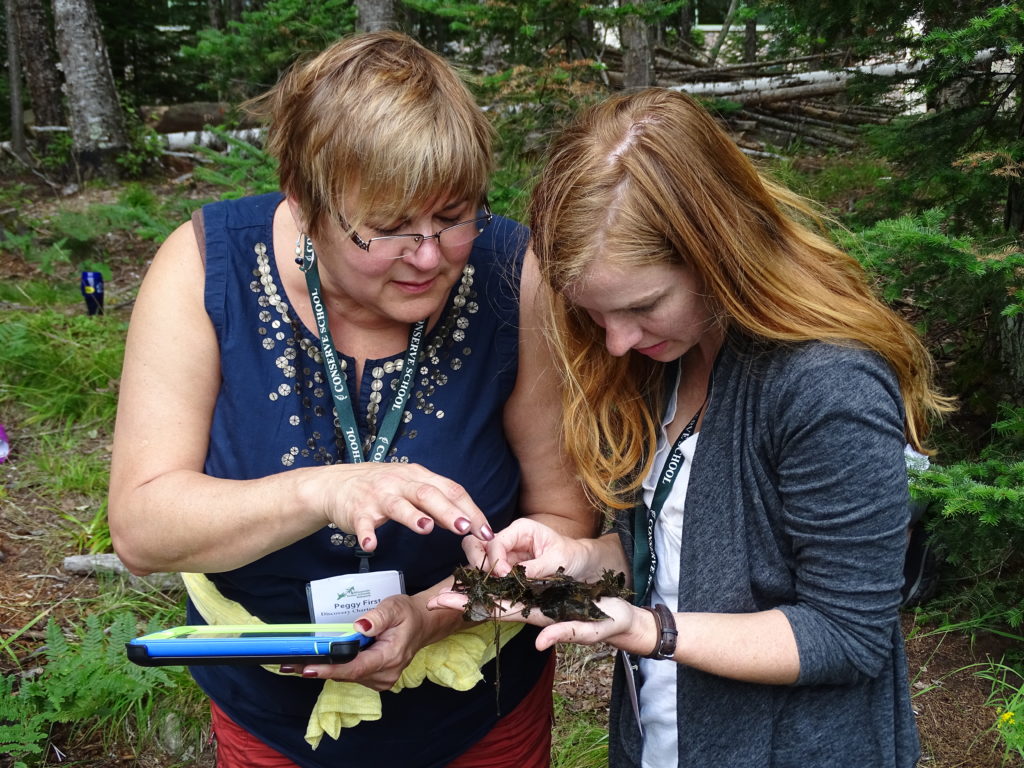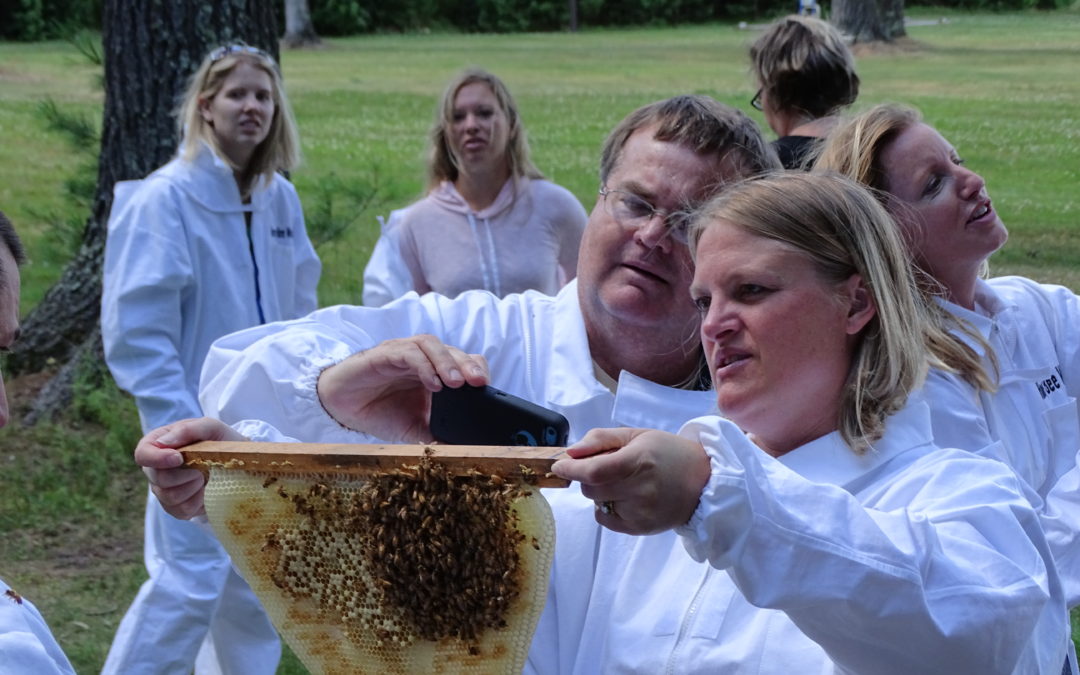No Teacher Left Inside Institute Provides Authentic Learning in the Outdoors
Quality professional development is vital to an educator’s work. I say this from the perspective of a former science teacher and principal. As a teacher, I sought out workshops that would provide authentic learning – in a natural context. Such experiences would fill my mind with ideas that could transform my teaching. I was “pumped.” As principal, I encouraged teachers to seek out professional development opportunities such as these. I encouraged staff to attend sessions outside the district since I felt it was important for teachers to connect with others whose teaching experiences were different than their own. I hoped that they would come back fired up, ready to try out some new ideas. Luckily, such an opportunity exists! The No Teacher Left Inside Institute provides participants with just such an experience. The institute, hosted by the Wisconsin Green Schools Network and the Green Schools National Network will take place July 18-21 at Conserve School in Land O’Lakes, Wisconsin.
I have attended several NTLI institutes, along with a team of teachers from our school. Our experiences had a lasting impact on our school. Personally, it allowed me to take the time to reflect on my work as a school leader, and how we might be able to implement projects and experiences that would grow our student’s environmental and sustainability literacy. Working alongside school staff, our experiences and collaboration time played a large part in our school’s quest to become more sustainable and healthy. The institute planted the seeds for change that eventually led to our school being designated as a 2015 U.S. Department of Education Green Ribbon School and a Wisconsin Green and Healthy Sugar Maple School.
The institute always features hands-on opportunities. A couple years ago we learned about various types of gardening. Our staff was especially interested in using bales of straw as the base for growing vegetables. The following spring, bales of straw were secured and vegetables planted. Another focus was hydroponic gardening. An expert speaker came to talk about the science of hydroponics, and materials were available for teachers to construct a hydroponic unit using an aquarium. Last year’s technology session focused on using applications that helped ID trees, plants, and even objects in the night sky. We used ProScopes to take magnified pictures. We learned about bees and beekeeping. A visit to a high school demonstrated how beekeeping could be part of a biology curriculum. We donned bee suits and handled bee slats. Perhaps beekeeping will become part of the curriculum at our school in the near future!
Educators work in all types of environments. They are often asked to do without necessary materials, work in challenging spaces, and to do more with less, often with little acknowledgement of the hard work they do. At the NTLI Institute, educators are treated as the professionals they are. Accommodations consist of comfortable cabins nestled in the woods, delicious meals and snacks, numerous recreational activities such as kayaking, canoeing, hiking– even yoga – and time to reflect upon the new learning. This year there will even be an optional wilderness camping experience! Best of all, it provides ample time for participants to get to know others who share their passion for teaching. It is an environment that promotes the importance of educators and the work they do. Although this may not make up for the challenges of an educator’s everyday work situation, it can go a long way to restoring ones soul – and reminding teachers why they entered the important profession of teaching.

This year’s institute will model how to use an environmental and societal issue to create an interdisciplinary unit of study. The historic Walleye War of Wisconsin will be used as the focus of the week, demonstrating new strategies and ideas to pull science, social studies, and English Language Arts together to create a powerful integrated unit of study. Teachers will have the opportunity to develop skills as anthropologists and historians when they vision with elders on the Lac Du Flambeau Reservation, and as conservation biologists when they work with local fisheries experts to collect data for use in a study of local fish populations. Teachers will also have an opportunity to identify a topic that is pertinent to their own area, and work to write plans that they can use when they return to school in the fall.
Authentic learning in beautiful northern Wisconsin, away from cell phones and day-to-day distractions; modeling of good teaching by knowledgeable enthusiastic leaders; and the opportunity to choose from a variety of elective workshops. These are all characteristics of worthwhile professional development. I encourage that you check out the NTLI Institute and add it to your summer experiences. It promises to leave you with fond memories and new friendships, strengthen your love of teaching, and leave you excited and ready to influence your student’s environmental stewardship come fall.
Sue Sewell is a past Wisconsin Presidential Science Award winner, co-founder of Discovery Charter School, and former principal of Columbus Elementary Discovery Charter School in Columbus, Wisconsin.

